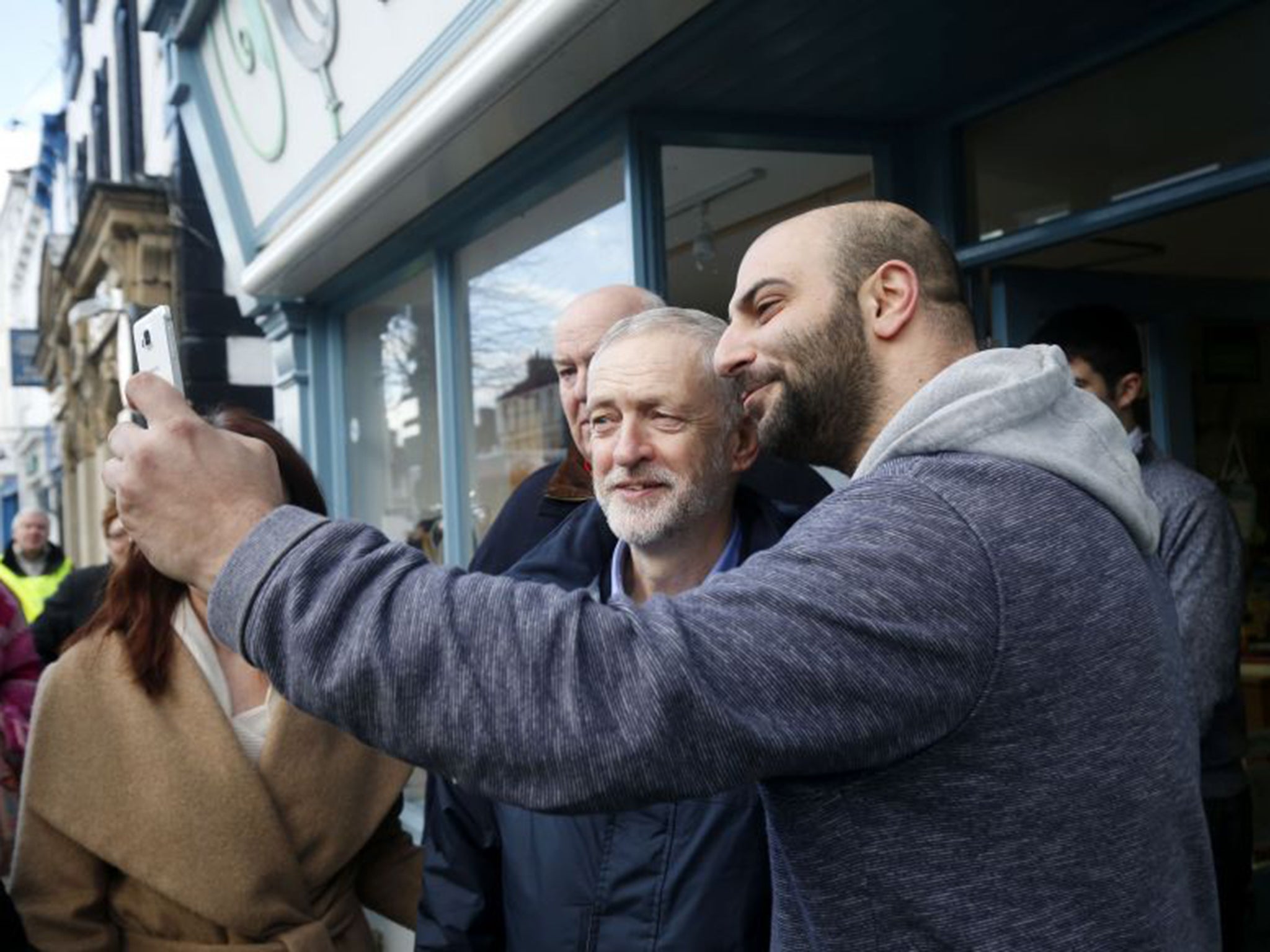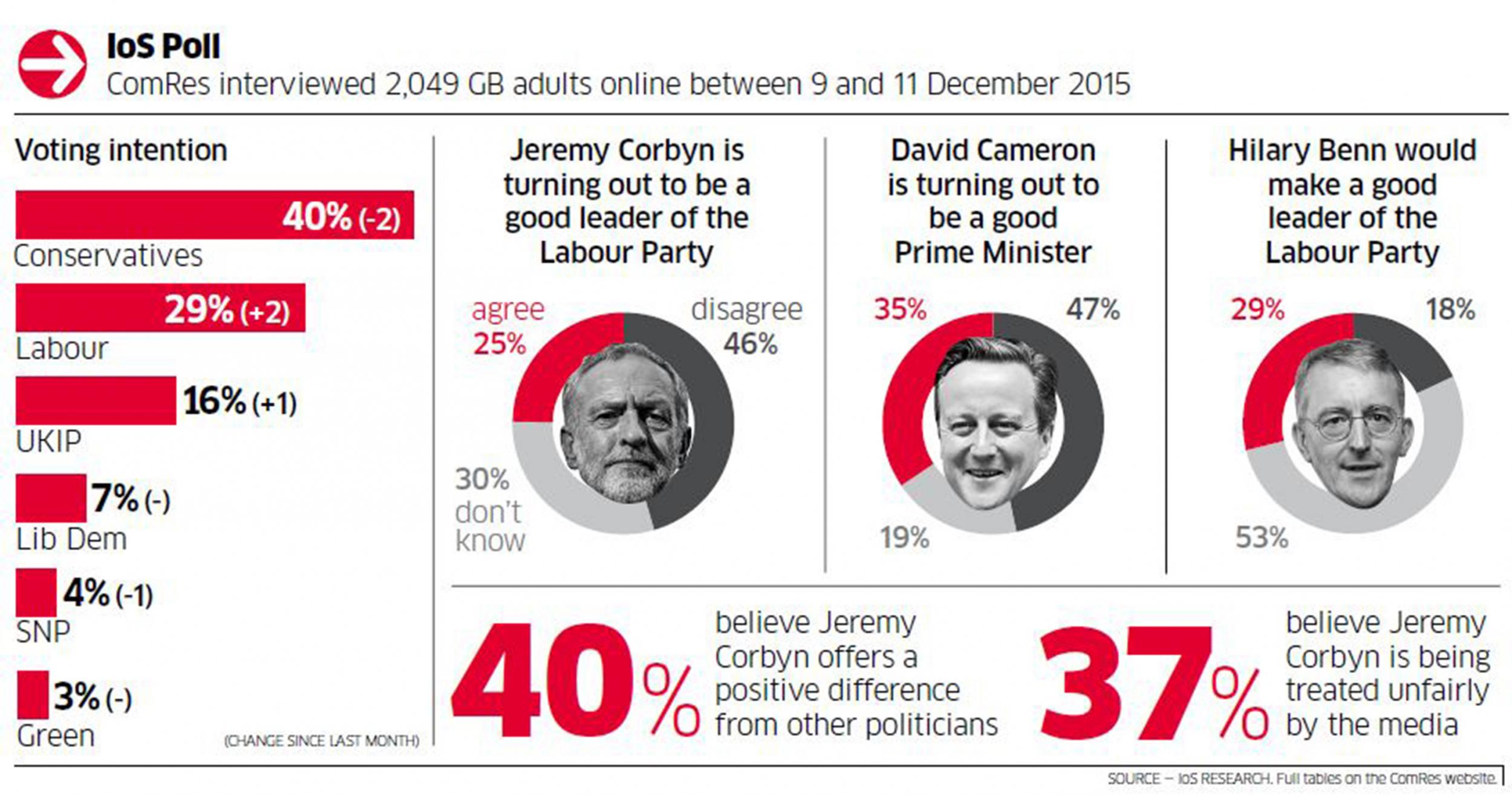Memo to the media bubble: real people like Jeremy Corbyn
Away from Westminster he’s perceived as an honourable, decent man – even if voters disagree with his views


I am writing this from Sale, which is a comfortable suburb of Manchester. The important thing is that I am not in London. For what I have to report is an uneasy sense of alienation from the certainties of the political classes who live their lives, and learn their values, inside the Westminster bubble. Out here in the regions – to the horror of the metropolitan elite – lots of people rather like Jeremy Corbyn.
I’m not talking about unreconstructed lefties, the kind of folk who walk around with T-shirts that proclaim: “Labour: I prefer their earlier work”. No, I mean the kind of people you fall into conversation with – we talk to strangers in the North – in the queue at Waitrose, in the concert-hall bar or the new security queues at the Old Trafford turnstiles. In such middle-class venues I am hearing a widespread grudging admiration for the Labour leader’s sheer authenticity.
This is, of course, purely anecdotal. Opinion polls are more scientific; today’s in this newspaper (see page 6) suggests that 25 per cent of the population think Corbyn is turning out to be a good leader, which is quite high when you consider the opprobrium routinely showered upon the man by the media. But what if they had been asked whether they liked Corbyn? I suspect the figure would be a lot higher, from the individuals I encounter.
It seems to be the same in Bath, to judge from BBC1’s Question Time last Thursday. A member of the audience asked whether Corbyn is treated unfairly by the media. After one of the panellists, Tory Cabinet minister Greg Clark, delivered a conventional party political attack, the questioner was asked his view. Clark had lambasted Corbyn for hesitating before indicating whether he would order the police to shoot-to-kill terrorists. The chap in the audience contradicted the politician: “The fact that he hesitates before he answers shows that he’s considering all the options first.” The riposte was greeted with thunderous applause.
We are outside politicians’ usual comfort zone with Corbyn, which is perhaps why his opponents in politics and the press attack him so ferociously. Interestingly, although today’s poll suggests only a quarter of voters like him as leader, 37 per cent think he’s being treated unfairly by the media.
What the political classes fail to understand is the way that ordinary people respond to Corbyn’s rather British decency. Many people dislike the way that a reciprocal decency is not on display from the political elite.
That view is not confined to those who approve of Corbyn’s policies. The middle-aged lady I overheard the other day in a Cheshire café was not concerned with Corbyn’s desire to scrap Trident but was full of admiration for the hug he gave to a Cumbrian flood victim to whom the Labour leader sang “Happy Birthday”.
An elderly taxi-driver – normally the acme of self-employed indignation – praised Corbyn’s passionate insistence that it should not be ordinary people who pay for the excesses of the bankers.
A waiter in his fifties on the train to London was unenthusiastic about Corbyn’s plan to renationalise the railways – as are most of us who travel on the highly efficient Virgin West Coast service; but he nonetheless described the Labour leader as “a chap you’d enjoy having a pint with”.

The Cambridge classics don, Mary Beard, articulated all this more fully on Question Time when she said of Corbyn: “He’s having a pretty rough time and is behaving with a considerable degree of dignity.” If he sings “God Save the Queen” he’s called a hypocrite because he’s a republican, she complained, and if he doesn’t he’s showing a lack of respect to our troops. “I rather like his different style of leadership… I rather like hearing arguments, not soundbites… He might be changing the party in a way that would make it easier for people like me to vote for.”
Interestingly, her comments were met with two kinds of applause – vigorous clapping, presumably from Corbyn enthusiasts, but a steady politer form which, I suspect, came from those who disagree with his policies but disagree rather more with the behaviour of his opponents.
Labour leaders always have to deal with that from the Tory press. But there has been something especially seedy in recent journalistic smear and side-swipe – printing photos of Corbyn allies in which they look like rough sleepers and dredging up quotes from the ancient past.
All this violates the British sense of fair play, especially when targeting a man who has declared that “politics is reduced” by abuse, name-calling and character assassination and insists that “none of it advances debate, ideas or mobilises or motivates people but merely turns them off”. Corbyn’s approach is refreshing to voters fed up with years of listening to slick-suited politicians who are always on message and who yet routinely dissemble and swerve from the truth.
A leader who admits to difficulty in decision-making is also a novel departure in British politics. Allowing Labour MPs a free vote on bombing in Syria – unlike David Cameron, who whipped the Conservatives – only adds for many to the idea of Corbyn as a character of old-fashioned decency.
When Corbyn entered the Labour leadership he was a 200-1 rank outsider. What made him into the favourite was his ability to engage the interest of a younger generation, alienated from politics. It won him the leadership. But most voters in the next general election will be over the age of 55. Corbyn seems to be winning over more of them now than his opponents thought possible.
Paul Vallely is visiting professor of public ethics at the University of Chester
Join our commenting forum
Join thought-provoking conversations, follow other Independent readers and see their replies
Comments
Bookmark popover
Removed from bookmarks